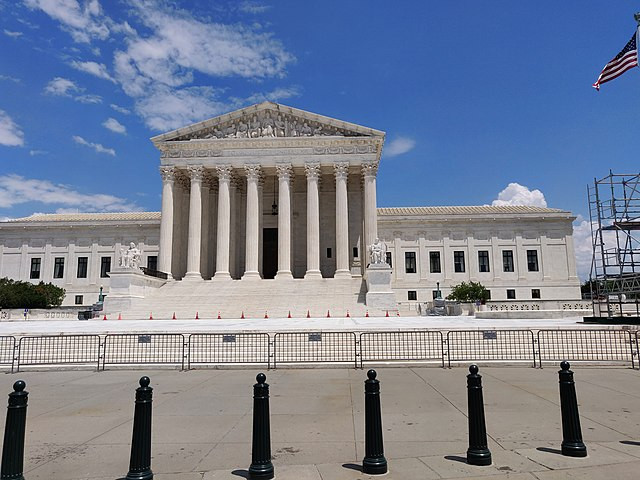The Supreme Court appeared ready Tuesday to strike down Colorado's ban on conversion therapy for minors, with several conservative justices signaling that the state's restrictions infringe upon the First Amendment rights of licensed counselors. The outcome could reshape how states regulate mental health practices nationwide, forcing more than 20 states to reconsider laws that prohibit the discredited therapy.
At the center of the case is Kaley Chiles, a licensed Christian counselor in Colorado who claims that her "faith-informed counseling" is speech protected by the Constitution. Represented by the Alliance Defending Freedom, Chiles argues that the state's law blocks her from helping clients "who have a goal to become comfortable and at peace" with their body.
Her attorney, Jim Campbell, told the court: "Colorado can't prove harm because it hasn't cited a study focusing on what's at issue here - voluntary speech between a licensed professional and a minor." Campbell said the state failed to explore less restrictive alternatives before imposing a blanket ban. "If heightened scrutiny doesn't apply, states can transform counselors into mouthpieces for the government," he said.
Colorado Solicitor General Shannon Stevenson countered that the statute does not regulate speech but professional conduct. "No one has ever suggested that a doctor has a First Amendment defense to say the wrong advice to their patient," Stevenson told the court. She added that the law applies only to licensed professionals-not pastors or life coaches-and ensures that patients "expect information that is complying with the standard of care."
Several conservative justices pushed back on Colorado's defense. Chief Justice John Roberts said, "Just because they're engaged in conduct doesn't mean that their words aren't protected." Justice Samuel Alito questioned whether "medical consensus has been politicized" and cited historical examples where scientific opinion later proved misguided. "Was there a time when many medical professionals thought that certain people should not be permitted to procreate because they had low IQs?" he asked.
Justice Amy Coney Barrett pressed Colorado to identify concrete evidence of harm. Stevenson responded, "People have been trying to do conversion therapy for a hundred years with no record of success. There is no study, despite the fact that people tried to advance this practice, that has ever shown that it has any chance of being efficacious." She said the harm "comes from telling someone there's something innate about yourself that you can change."
The court's liberal justices, including Ketanji Brown Jackson, appeared concerned about consistency with earlier rulings. Jackson asked why the case wasn't equivalent to the court's recent decision upholding Tennessee's ban on gender-affirming care, suggesting the regulation of therapy could be viewed as a form of medical oversight. "It just seems odd to me that we might have a different result here," Jackson said.
The Biden administration, represented by former Trump-era attorney Hashim Mooppan, sided with the counselor. Mooppan argued that this case differs from the Tennessee ruling because "from a very broad perspective, there shouldn't be equivalence" - the Chiles dispute involves speech, while the Tennessee law addressed medical treatment.
Despite the emotionally charged issue, the justices' tone remained restrained during the 90-minute session. Justice Brett Kavanaugh, often a pivotal vote, did not ask a single question. Observers noted the argument suggested the court's 6-3 conservative majority might apply a stricter free-speech test to Colorado's law rather than striking it down outright - a move that would likely leave the statute vulnerable in lower courts.





